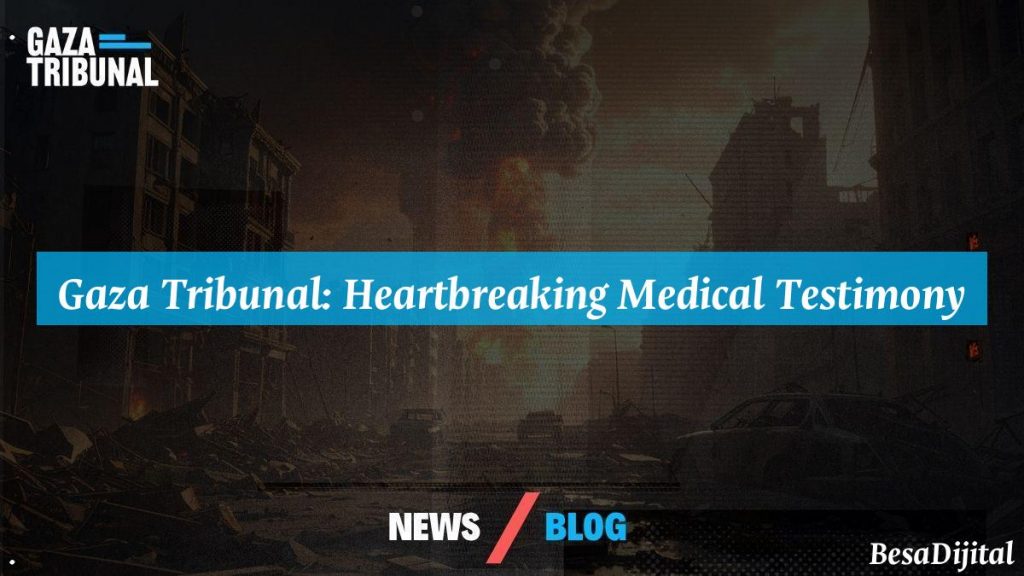In the face of unimaginable loss, the stories that emerge from Gaza resonate with stark clarity and profound urgency. The harrowing experiences of individuals like Dr. Ali Hassan Al-Nuwairi reveal not just personal tragedies, but a greater narrative intertwined with the quest for Gaza Accountability. The shattering moment when a family home transforms into a grave, bringing forth questions about safety, survival, and the future, encapsulates the multifaceted nature of warfare. With each passing day, these narratives push us to confront vital truths about human rights, accountability, and what it means to bear witness. Yet, can we truly grasp the depth of their suffering if we remain silent? As we step into these stories, we understand that the path to justice transcends mere documentation; it weaves into the fabric of our shared humanity.
To take but one telling example, the complexities surrounding Gaza’s situation are not solely about immediate horrific events; they are a testament to resilience and the unyielding spirit of those affected. For Dr. Ali, the silence of his wife and children reverberates louder than any attack, emphasizing how vital it is to connect personal loss with broader social, legal, and humanitarian implications. To grapple with Gaza Accountability is to recognize the intricate webs spun from grief and determination, where every testimony enriches our understanding of responsibility and justice. As we reflect on these narratives, a compelling question arises: how do we ensure that such voices are not only heard but acted upon? It is our collective responsibility to amplify their stories, and in doing so, we commit to preserving and honoring the memories of those who have suffered unimaginable losses.
The Life Before the War
Dr. Ali Hassan Al-Nuwairi lived in a bustling home that embraced three generations. His family thrived under one roof—doctors, nurses, and children filled the space with laughter and love. They shared evening meals and joyous Ramadan celebrations, creating a tapestry of memories. Dr. Ali recalls those moments fondly, saying, “It was a beautiful life filled with love and harmony.” Every corner of their home held stories of togetherness, laughter, and ordinary joys. They took evening strolls, enjoying the simple pleasure of each other’s company.
However, on the eve of the war, that life changed dramatically. Communications ceased, and uncertainty loomed. Dr. Ali returned home after a grueling twenty-four-hour shift, unaware of the impending chaos. He shared breakfast with his wife, Enas, discussing the war’s toll on their lives. As he lay down for a brief rest, he believed they were safe in their designated “safe area.” But the unexpected happened. Suddenly, everything shattered. In an instant, the world he knew crumbled into dust. What does one do when everything you cherish is taken away in a heartbeat?
Surviving the Rubble
Moments after the blast, neighbors rushed to help Dr. Ali escape the debris. He lay there, assessing the situation, his medical training kicking in. “From my experience in hospitals, the house broke like a biscuit,” he explained. Despite the grim reality, he held onto hope. The odds felt stacked against him, yet he clung to the possibility that someone might still be alive. The thought of his family pushed him to fight through the pain and confusion.
In the hospital, he faced the harsh truth of his injuries. Paralyzed below the navel, he grappled with loss and despair. The medical staff provided minimal updates, leaving him in agony—a tormenting silence about his loved ones. He longed for answers, asking about Enas and their son, Hassan. When his cousin arrived, he braced himself for the worst. The answers came slowly, each word piercing his heart. “You want to cry, but crying won’t express what’s in your heart.” How does one process such profound loss?
The Weight of Witnessing
Dr. Ali’s experience as a surgeon during the war revealed the devastating realities of conflict. He worked tirelessly, witnessing injuries that defied comprehension. “You wouldn’t find typical injuries,” he remarked, describing the horrific aftermath of bombings. Patients arrived with unimaginable wounds—burns, amputations, and trauma beyond what he had previously encountered. Each day blurred into the next, a relentless cycle of pain and suffering. The hospital struggled to cope, struggling to provide even basic care.
This lays bare that, the intentional targeting of medical teams became painfully evident. Dr. Ali shared the story of a colleague who lost their life just days before his injury. Such tragedies highlighted the vulnerability of those dedicated to saving lives. He expressed frustration at the double standards in the world, where some lives seemed to matter more than others. “We are only waiting for divine justice,” he stated, revealing a deep yearning for accountability and healing. How do we confront such injustices?
Hope Amidst Despair
Despite the overwhelming challenges, Dr. Ali continues to envision a future for himself and Gaza. Rehabilitation in Turkey offered a glimmer of hope, even as he faced long-term recovery. The medical staff provided exceptional care, going above and beyond for their patients. “They stayed with me until the last breath,” he expressed, grateful for their unwavering support. Each day brought small victories, like the gradual recovery of his leg, reminding him that progress is possible.
Rebuilding life post-war will require more than physical healing. Dr. Ali believes in the resilience of the Gazan people. “We are a people connected to our land,” he said, emphasizing the deep ties that bind them to their home. The road ahead is fraught with challenges, yet he remains determined to contribute to the rebuilding of health services. “Maybe tomorrow will be better.” One can find strength in hope, even in the darkest times. Thank you for joining us in amplifying these vital stories. Together, we can remember and honor the lives affected by this ongoing tragedy. For more information, visit our homepage.
Source: Witness Eye.
Gaza News


